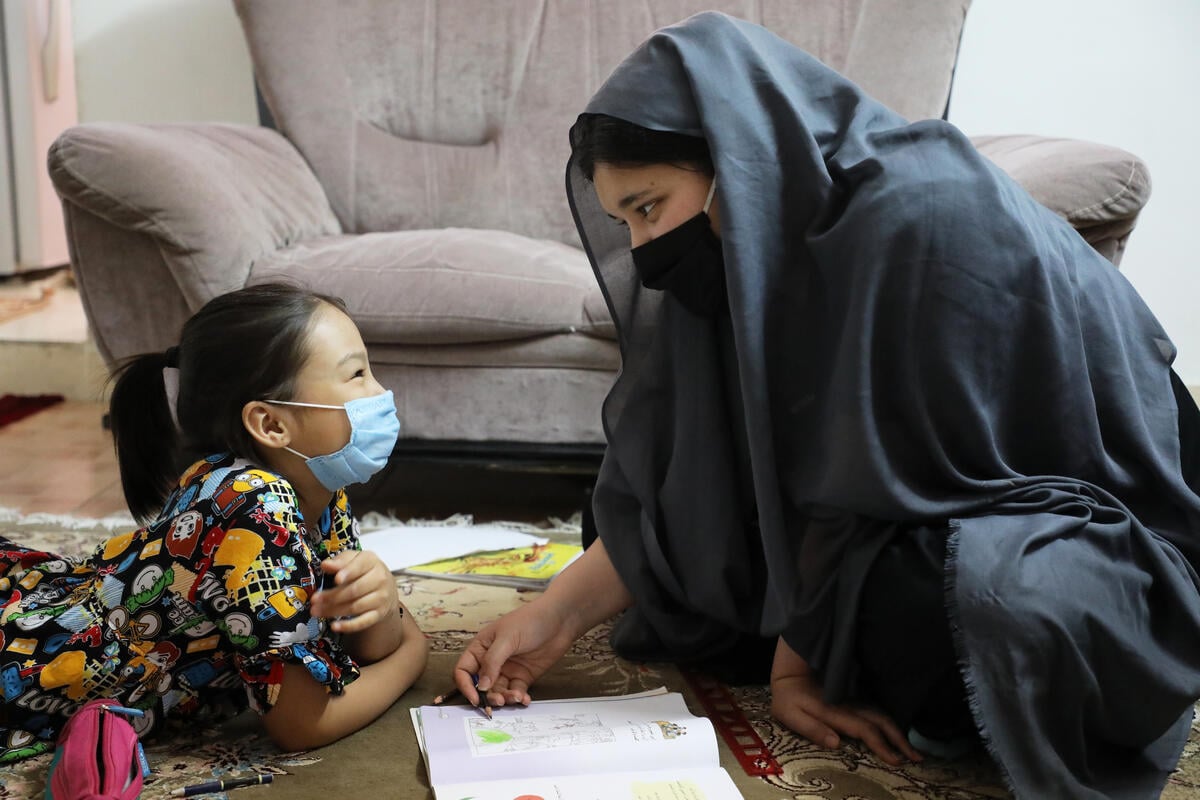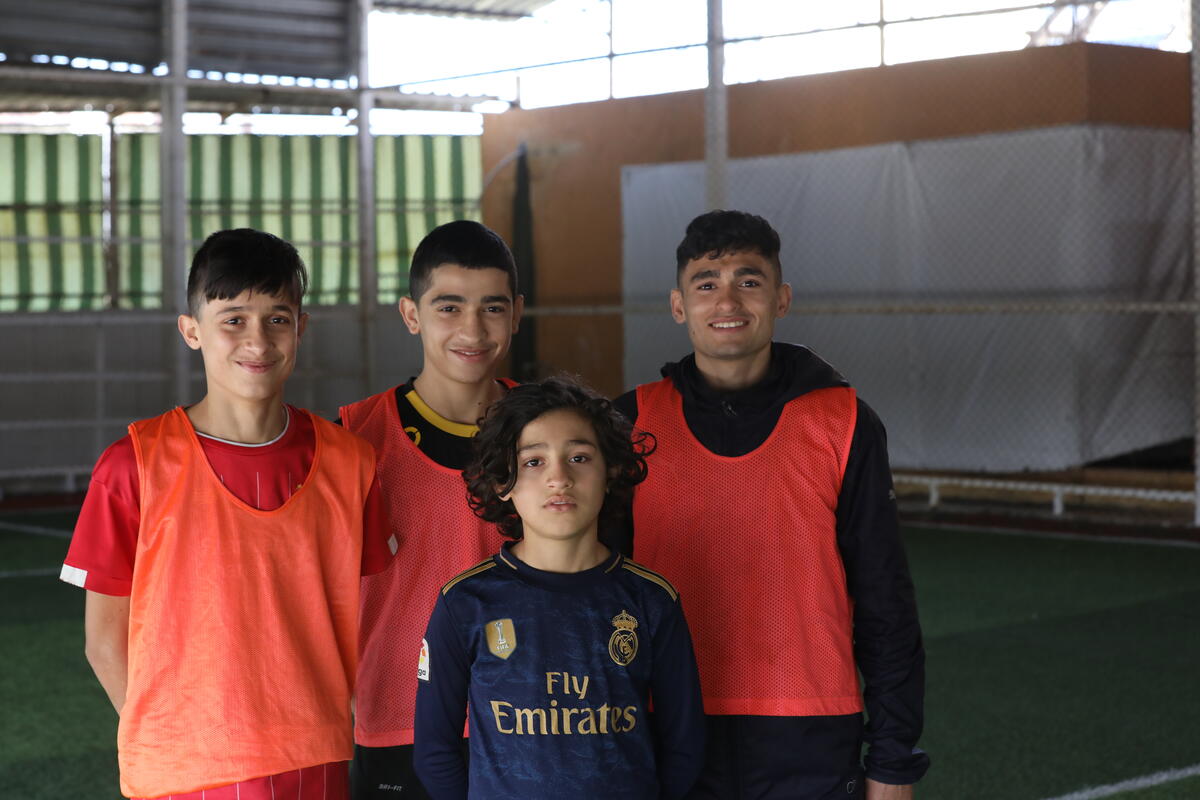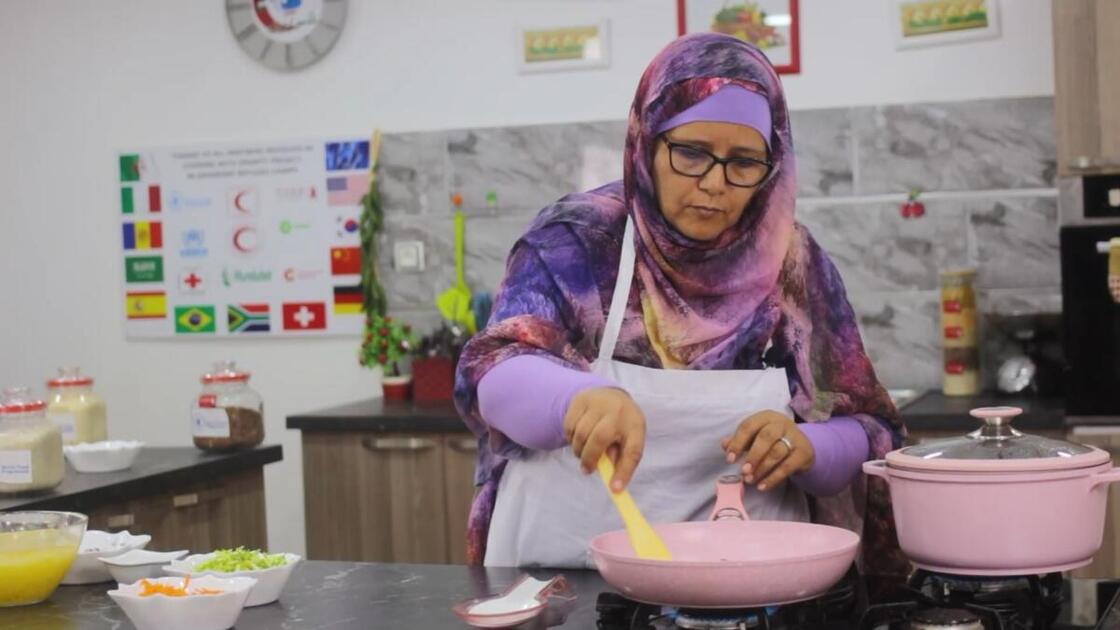10.5 million refugees received health care in 2018
10.5 million refugees received health care in 2018

Despite record levels of worldwide displacement and continuing refugee influxes, some 10.5 million refugees received health care through public health programs and through UNHCR, the UN Refugee Agency, and other partners last year.
This is according to data published in UNHCR’s Annual Public Health Global Review, released today.
The report highlights the state of health, nutrition, water, sanitation and hygiene activities for refugees, asylum seekers and affected host communities across 51 refugee-hosting countries.
“With the majority of refugees, 84 per cent, hosted in developing regions where basic services are already strained, national health systems need more support than ever to ensure refugees and their local host communities can access life-saving and essential health care,” said UNHCR’s Assistant High Commissioner for Operations, George Okoth-Obbo.
The report shows that among progress made in 2018, mortality rates among refugee children under the age of five, an important health impact indicator in emergencies, continue to decline.
Reported mortality rates of refugee children under five improved from an average of 0.4 per 1,000 every month in 2017 to 0.3 in 2018.
This is despite continued refugee influxes, including from Myanmar, South Sudan and the Democratic Republic of the Congo into neighbouring countries last year.
The report also highlights significant progress made on the inclusion of refugees into national health systems, with some countries also making notable efforts to expand opportunities to include refugees in health insurance schemes and other pillars of social protection.
In 37 host countries, most refugees are able to get vaccinations and treatment for tuberculosis, HIV and malaria on an equal footing with nationals.
Efforts also continued in 2018 to promote and facilitate access to comprehensive reproductive health services, including maternal and new-born health and family planning.
In 80 per cent of countries where UNHCR supports health activities, 90 per cent of refugee women delivered their babies in health facilities with skilled assistance – the single most effective measure in reducing maternal and newborn mortality as well as stillbirth.
Key areas of concern for refugee health however, include disease outbreaks in refugee contexts. Over the course of the year, UNHCR public health teams and partners responded to various outbreaks ranging from diphtheria and suspected measles in Bangladesh, to cholera and viral haemorrhagic fever in Kenya and Uganda.
Malnutrition also remains a worrying refugee health issue. While improvements in Global Acute Malnutrition (GAM) rates, one of the main nutrition indicators, were made in a number of refugee settings, when compared to the previous year, UNHCR is extremely concerned about the continued high levels of anaemia and persistently high levels of stunting among many refugee populations.
While the causes of malnutrition vary, food insecurity is a significant factor. Many UNHCR operations have suffered increasing cuts to food assistance over the past few years and there is an increasing trend in the number of countries affected.
Cuts to food assistance are particularly worrying as refugees often have limited other legal options to increase their income or access to food. Many resort to potentially harmful coping strategies to meet their basic needs which can increase protection risks such as pulling children out of school to work, begging and selling assets.
The integration of mental health into primary care remains a priority. Mental health consultations accounted for less than two per cent, 154,000, of the total number of refugee health consultations, some 7.5 million, at UNHCR and partner health facilities in 2018.
Given the record levels of forced displacement globally, and with 25.9 million refugees worldwide, UNHCR is appealing for support to sustain its core activities, such as for refugee health programs. As of mid-2019, only 30 per cent of UNHCR’s global budget of US$8.636 billion, which supports life-saving services and programs for refugees in 131 countries is funded.
The link to the report is available here: https://his.unhcr.org/ar2018/
For more information, please contact:
- In Geneva, Shabia Mantoo, mantoo@unhcr.org, +41 79 337 7650









